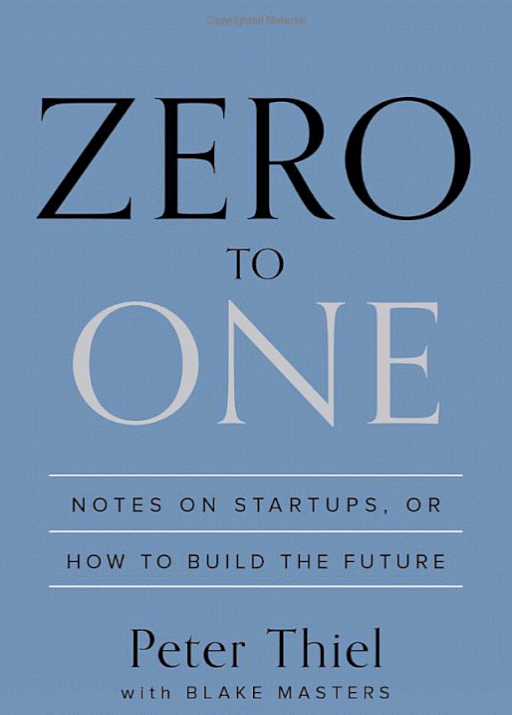Peter Thiel: The Multiverse Is a “Gateway Drug”
It’s a gateway drug to other crazy ideas, like the belief we live in a simulationBELLEVUE, WA — Speaking to tech leaders and investors at COSM 2022 in the Seattle area, entrepreneur Peter Thiel provocatively asked “why do so many people in Silicon Valley believe in the simulation hypothesis that the entire universe, the cosmos, is just a computer simulation? Why do they believe something as crazy as this?”

Actually, noted Thiel, the belief that our world is a simulation has now faded somewhat:
I think probably the peak belief in the simulation hypothesis was maybe something like a decade ago, maybe circa 2012 to 2015, and it has probably faded some. We’ll still have Gen Z people say that things are a glitch in the simulation or there’s still some sort of passive reference to it, but it’s a little bit less intense. And so the question of why we believe it is like, why did it gain so much momentum over the last 20 years? And then also, why did it lose some steam?
Thiel’s initial answer to the first question:
It’s just a sociological status game between the computer science and the physics people and that, in the 2000s, 2010s, computer science became the most important field… And so you could sort of say that you were showing that you were more important than the physics people. You got to determine what ultimate reality was. And it wasn’t particles and matter and fields, but it was just bits in a computer. And that this was sort of a physics versus computer science-type dynamic and reflected something about that.
But there is a “more fundamental answer” according to Thiel, which was tied to modern cosmology:
… it is that something had gone very haywire in physics, that you had, sort of, the multiverse… the big bang inflationary cosmology had gradually gone into this infinite multiverse where basically anything goes. And I think probably on some level, [you can] critique the multiverse as a theory of science… Being lost in all these infinities is tricky. You cannot do induction. Are you still doing science? Because the universe is too big for science. And that’s why I think you should often think of the multiverse as a gateway drug to all these very different things. And once you have the multiverse, you can also have the matrix or a simulation. You can have Boltzmann brains. You can have all kinds of strange possibilities for the nature of the universe. And so that even if we say the simulation hypothesis is kind of crazy on some level, is it really crazier than the multiverse — and sort of linked?
But Thiel had a third answer as “to why the simulation theory gained so much traction.” And that relates to the technological optimism of the recent past, including hope for the development of Artificial General Intelligence (AGI):
… we should look back on the last 17, 20 years of AI AGI. And if we went back 20 years in time, it was super optimistic in all these ways where it’s… going to be cornucopian. 2005 is when Ray Kurzweil wrote The Singularity Is Near. Basically, you’re going to have accelerating runaway technological progress.
In some ways, it felt like you didn’t have to do much. So it was somewhat passive for the humans. You just had to sit back, eat some popcorn, watch the movie of the future unfold. And then there were certainly all these versions where there was going to be so much growth, we would need basic income as a safety net because there’d be no more labor market. You have sort of incredible discoveries in all these fields. There was certainly some latent question about how you’d have to make sure that AGI was friendly, but… the narrative in the 2000s, early 2010s was in this sort of optimistic utopian cornucopian direction of what AI would look like.
“But now, if we look at sort of what’s actually happening with AI,” said Thiel, the situation is completely different. AI has not panned out in the way many people hoped.
Most readers wouldn’t know the name “Peter Thiel ,” the way they know names like Bill Gates and, tragically, Steve Jobs (1955–2011). But as a tech venture capitalist, Thiel has certainly been there. Maybe more so. He helped PayPal, Airbnb and LinkedIn get started.

In many ways, Thiel exemplifies high tech venture capitalism. He is not identified with a single firm like Microsoft or Apple. Famously, he pays young nerds to just drop out of conventional business university courses where they learn why their ideas won’t work from people who have never even tried— and just start their businesses and see what happens.
His book, Zero to One, turns on a math conundrum: It is harder to go from zero to one than to go from one to 100 or 1,000 or a million… That’s where creativity comes in — and creativity is the one single thing we can’t just manufacture.
You may also wish to read: Harvard astronomer: Advanced aliens engineered the Big Bang. Avi Loeb writes in Scientific American that when we humans are sufficiently advanced, we will create other universes as well. Avi Loeb’s hypothesis is not logically stranger than the many hypotheses that attempt to account for the Big Bang without underlying information/intelligence.
